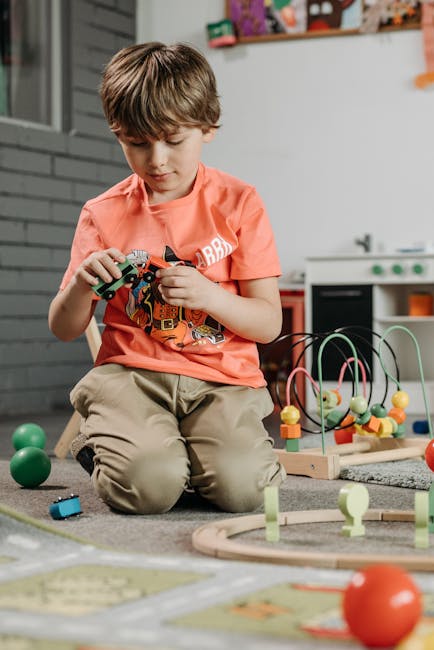
Behavior
Autism: Cognitive and Behavioral Perseveration/Possible Non-Medicinal Remedies For Coping
Imagine Solutions with Urban Youth Initiative inc.
19 July, 2022
Instances of cognitive and behavioral perseveration often occur in those with autism, and they may be challenging to cope with. Due to the limitations in various modalities, individuals with autism face difficulty controlling their behavior at all times. This persistent behavior likely becomes a form of entertainment for them. Most often, these behaviors may be problematic. However, there are also instances where these are beneficial.
Cognitive and Behavioral Perseveration
Cognitive and behavioral perseveration is the tendency to repeat a particular behavior, and this repetitive behavior is often demonstrated in autistic individuals. The causes of these rituals are unknown but have been shown to reduce when behavioral therapy has been used, and pharmaceutical drugs have proven to be little more than placebo. These types of rituals can lead to a loss of coping abilities and create an overly-stressful environment for the individual who is displaying them and those who are interacting with them.
Perseveration is the most common feature of autism. The child or adult with autism may have trouble moving on from a specific topic or activity, even if it has been established that they do not want to continue. For example, an autistic child may become obsessed with making a toy car move and become angry when you try to distract him from it.
This is not restricted to activities that are pleasurable for the individual, and it can also apply to activities that are unpleasant or painful. For example, an autistic child might become obsessed with getting out of bed in the morning and resist all attempts at persuasion by screaming and crying until he finally wears down his caregivers’ resolve to get him up for school.
In cognitive perseveration, the autistic person may continue to engage in an activity or behavior that is not appropriate for the situation. For example, a child may continually play with a toy even after it has been taken away. This behavior is often associated with stimming (vocalizations, hand flapping, and rocking).
In behavioral perseveration, the autistic person will repeat behaviors repeatedly even when they are no longer appropriate or necessary. For example, when told to go to bed, an autistic child might ask “why?” until they can stay up late enough to watch television before bed.
Perseveration can take many forms:
Repetitive behavior: This can include repeatedly lining up toys, spinning objects around in circles, or tapping things repeatedly.
Repetitive speech: This might involve repeating words repeatedly without meaning or purpose (echolalia) or repeating phrases with no apparent context (jargon).
Inappropriate fixation on objects: This might be a high interest in parts of things (such as buttons on clothes) instead of whole objects.
Possible Non-Medicinal Remedies For Coping
Treating perseverative behaviors with medication may be possible, but it should not be the first choice. There is little evidence that medications significantly impact these types of behaviors. Non-medicinal treatments are generally preferred because they can be tailored to the individual’s needs and preferences. However, it is essential to note that non-medicinal approaches will require significant time and energy from caregivers and family members.
The following are some possible non-medicinal remedies for coping with perseveration:
Visual schedules or visual strategies: Visual schedules are used to organize an individual’s day by breaking it down into smaller chunks and labeling each section with what will happen next (e.g., “snack,” “bath,” “bed”). Individuals with autism often benefit from visual schedules because they allow them to see what is coming next and help prevent them from getting overwhelmed by too many options at once.
Reduce distractions: Distractions can make it difficult for individuals with autism to focus on one task at a time without getting distracted by something else. It may be helpful for caregivers to reduce distractions.
Positive reinforcement: Use positive reinforcement to encourage appropriate behavior. If you notice your child engaging in positive behavior, reward them for it immediately, so they know what they’re doing right! You could also reward your child with a sticker chart that tracks all of their good deeds throughout the day, so they have something tangible to look forward to at the end of each day when they get everything checked off!
Checklists: Use checklists to teach organizational skills and encourage independence. Checklists can be used for any skill that must be learned or repeated regularly, such as brushing teeth, putting away toys, etc.
Social stories: Use social stories to teach social skills such as making friends and asking for help when needed. Social stories are written from the child’s perspective, using simple language and pictures so they can understand them easily without getting frustrated by more complex language or abstract concepts. Social stories should be reviewed frequently until they become routine for your child.
Play therapy: This is an excellent way of helping children express themselves and learn new skills without pressure or stress. The child can be helped through various activities such as arts and crafts or playing games that require eye contact, speech, and other skills.
Occupational therapy: Occupational therapists help children develop their motor skills by teaching them how to use their hands, mouth, and feet effectively in different situations such as eating, dressing, brushing teeth, etc. The therapist also teaches them how to use their senses more effectively to recognize things around them better.
Speech therapy: Speech therapists help children with autism improve their communication skills. This is achieved through different therapies such as speech training and language development programs which teach them how to communicate effectively with others using effective body language and words during conversation sessions.
